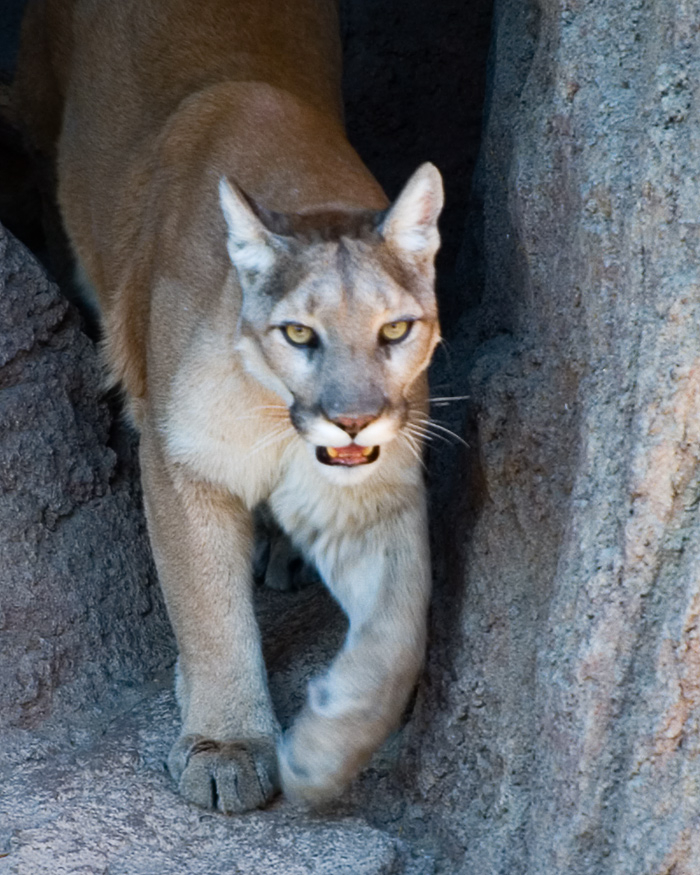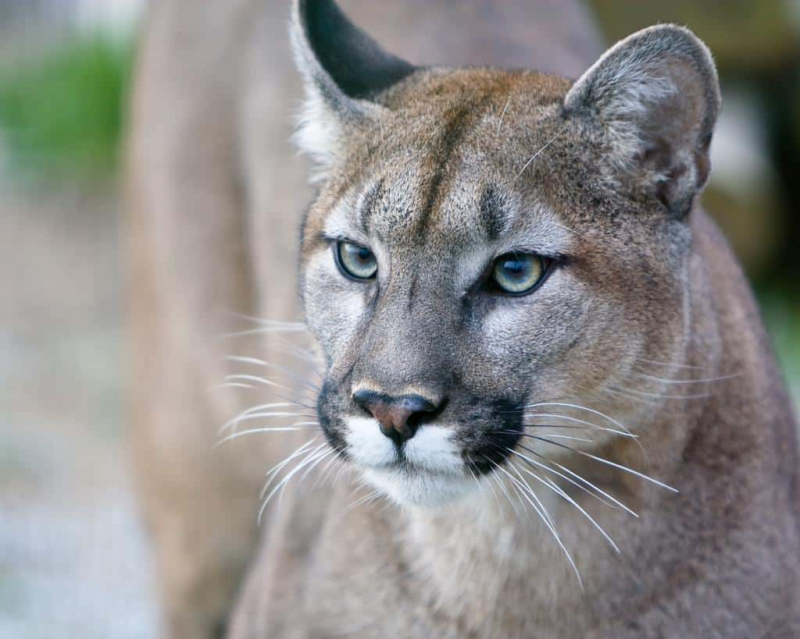Puma
Puma is a genus in the Felidae family that includes the cougar as its only extant species and may potentially include numerous poorly known Old World fossil members. In addition to these putative Old World fossils, a few New World fossils, such as Puma pumoides and the two species of the so-called "American cheetah," are now classified under the genus Miracinonyx, are possible. Pumas are huge, secretive cats. They are also known as cougars and mountain lions and can grow to be larger than other "big" cat species.
Cats, the fourth-largest member of the cat family, are subspecies of the genus Puma. Adult males can grow to be 7.9 feet (2.4 meters) tall from snout to tail and weigh between 115 and 220 pounds (52 to 100 kg). Females can grow to be around 6.7 feet (2.0 m) long from nose to tail and weigh between 64 and 141 pounds (29 to 64 kg). They also have tails that range in length from 25 to 37 inches (0.6 to 0.9 m). These cats have round heads with upright ears. They have powerful forequarters, necks, and jaws that aid in the capture and retention of prey. They have four retractable claws on both their fore and hind paws.
Because the majority of pumas live in hilly areas, they have thick fur coats that help them retain body heat throughout the cold winters. The puma's fur ranges in color from brown-yellow to grey-red depending on the subspecies and region of its habitat. Individuals who live in colder climates have greyer coats than those who live in warmer regions, who have more red coats. Pumas are ferocious predators with large bodies and powerful short legs. This genus contains enormous and powerful predators. Small creatures such as rats, birds, fish, and rabbits make up the majority of their food. Bighorn sheep, deer, guanaco, mountain goats, raccoons, and coatis can be caught by larger individuals. They occasionally take livestock in locations where there are a lot of them.











